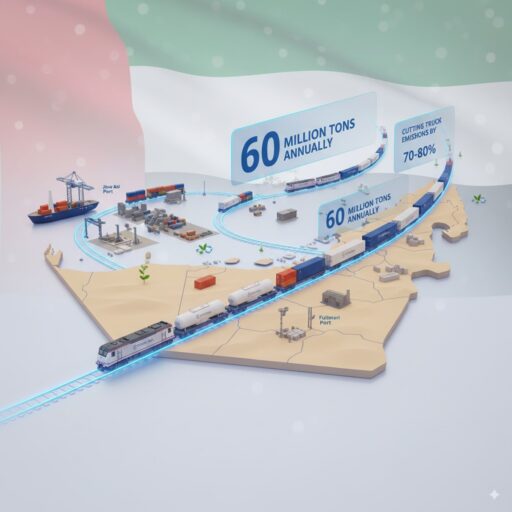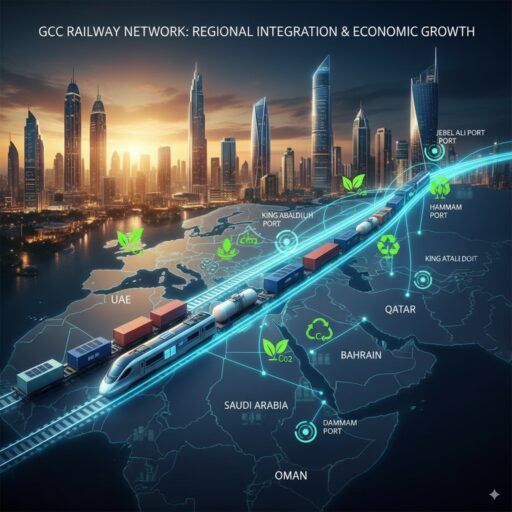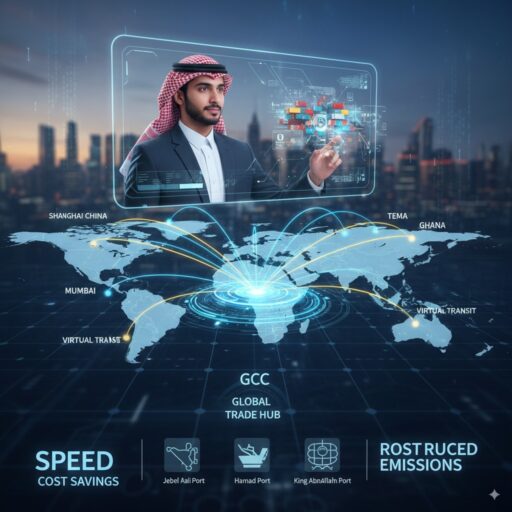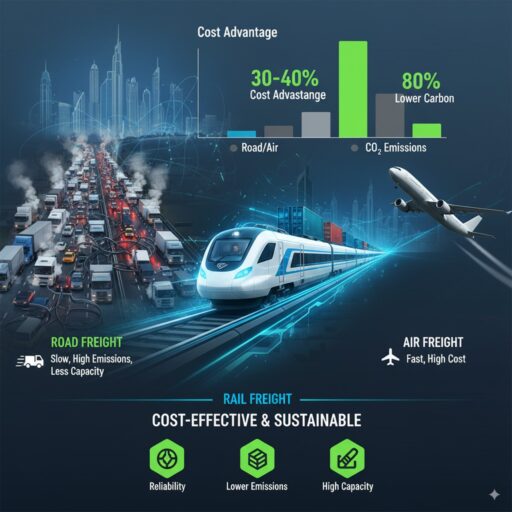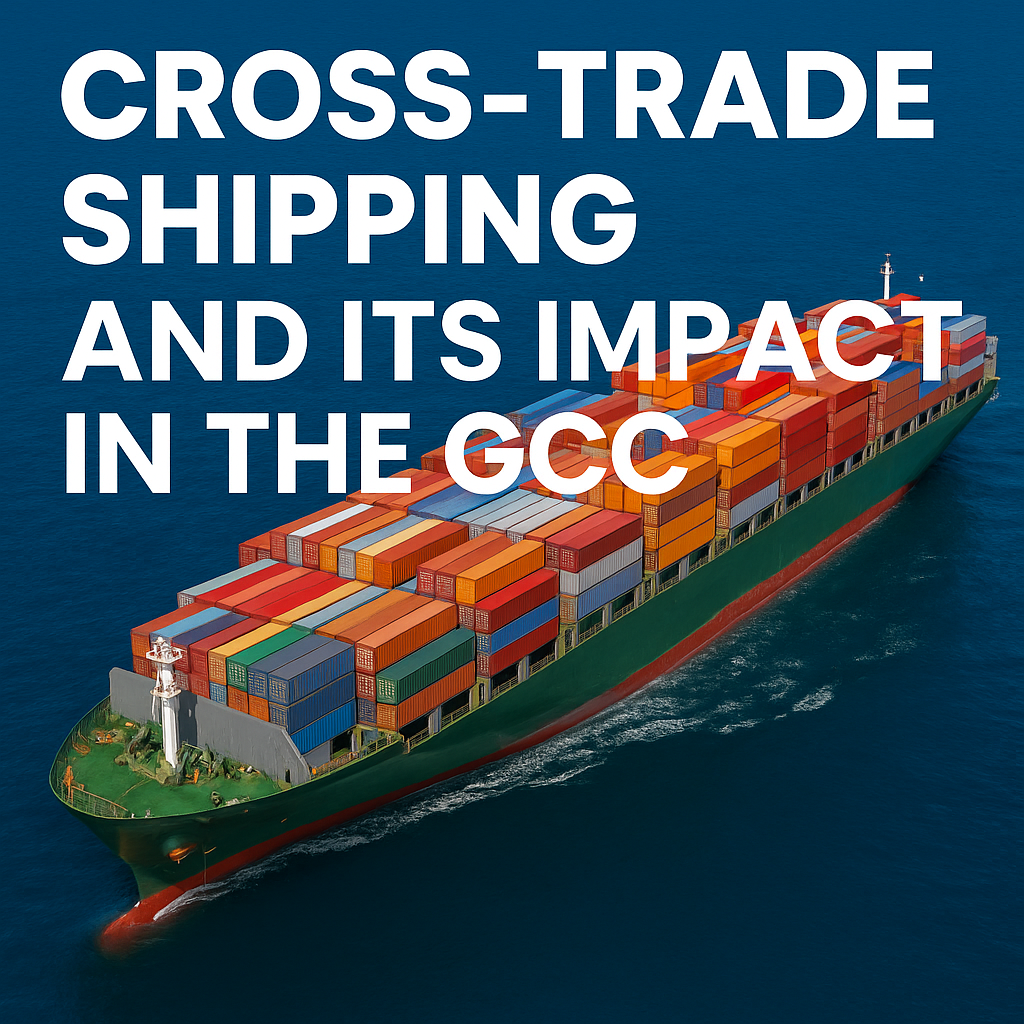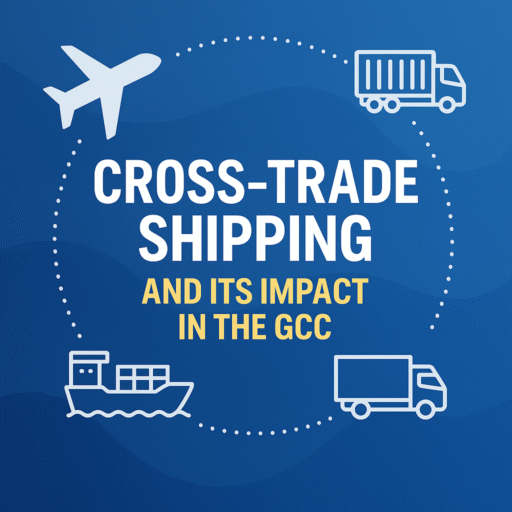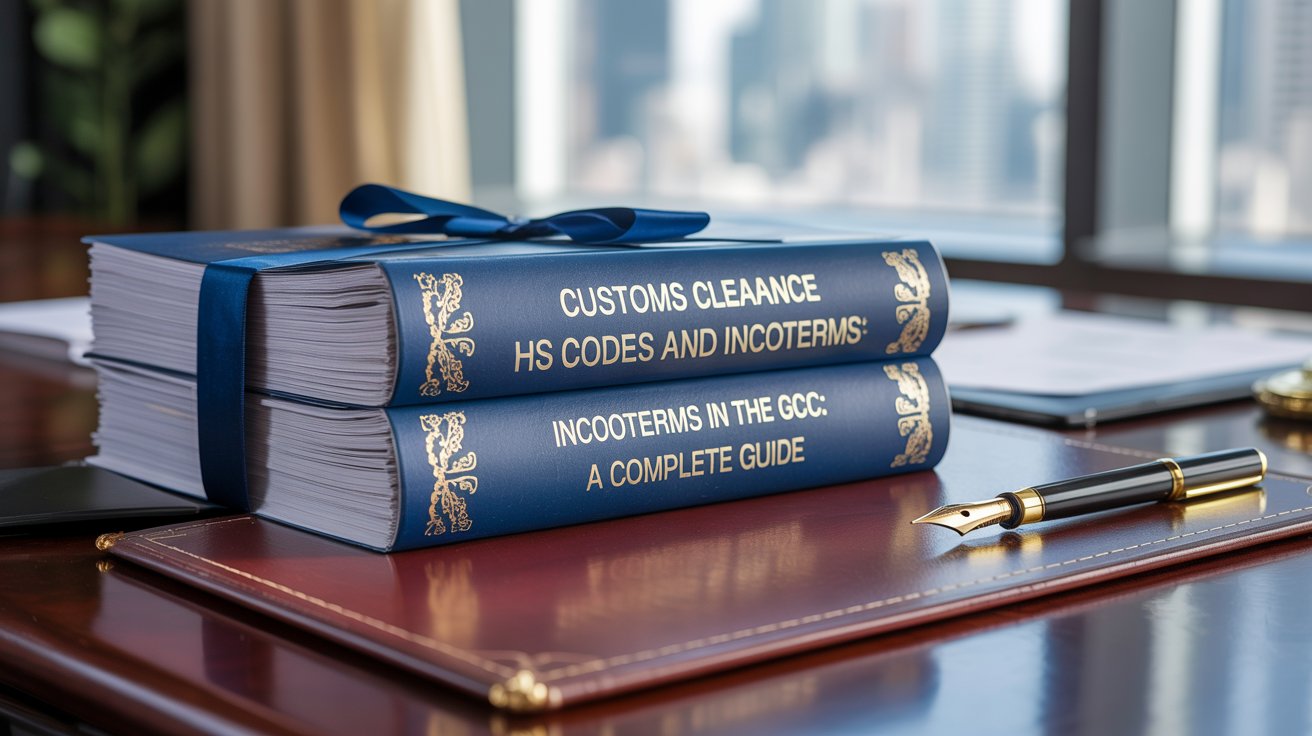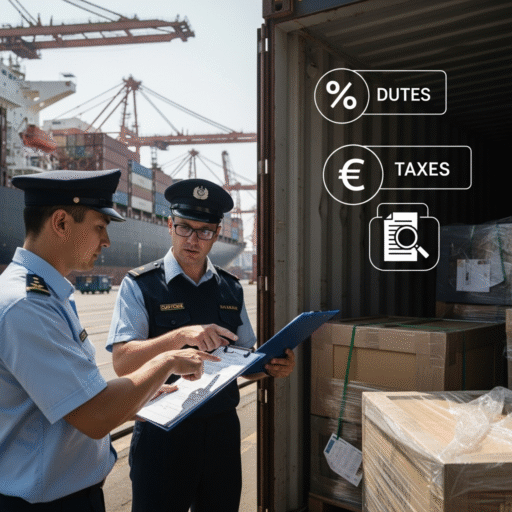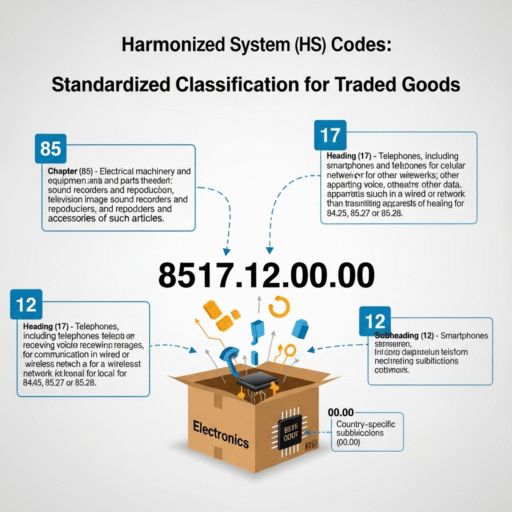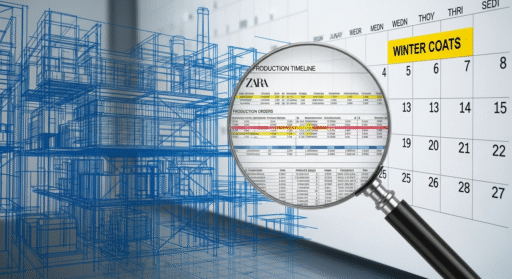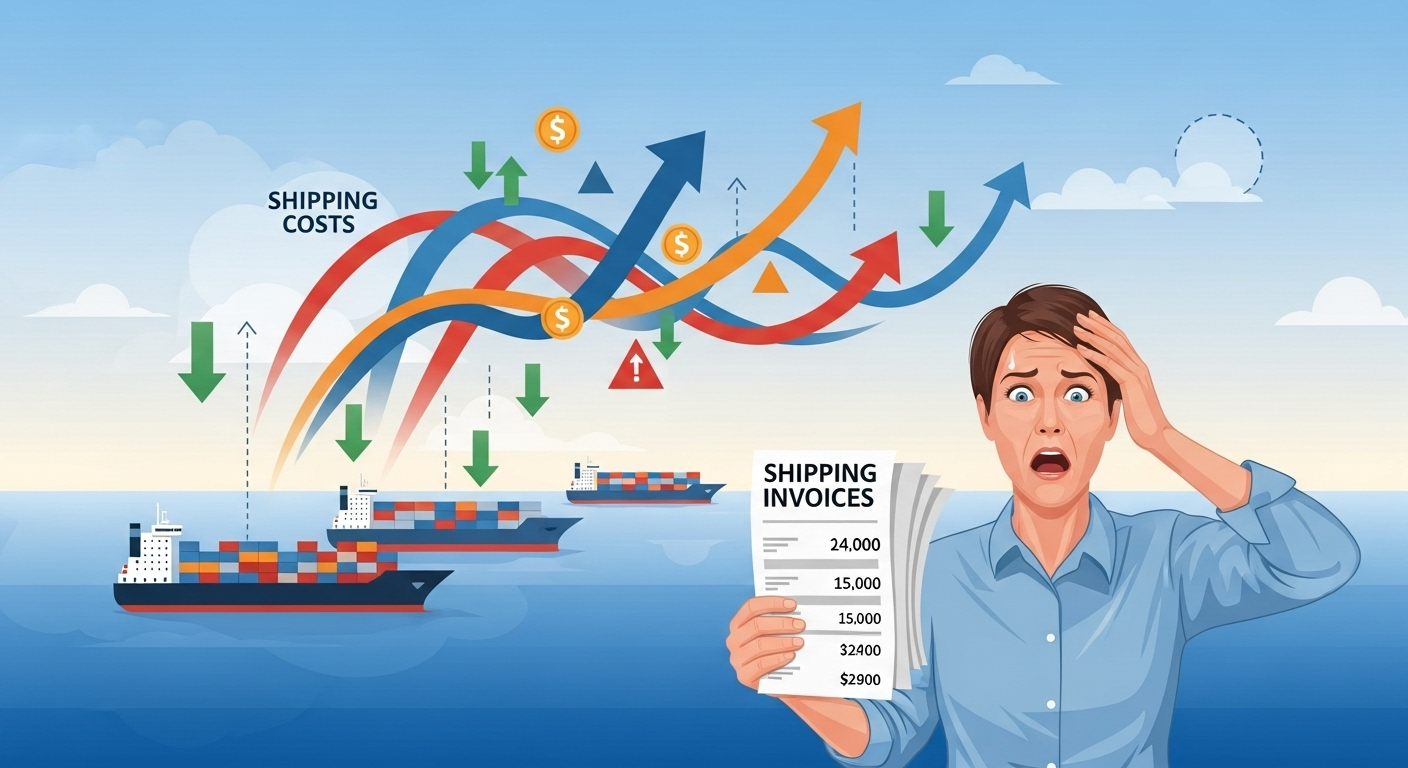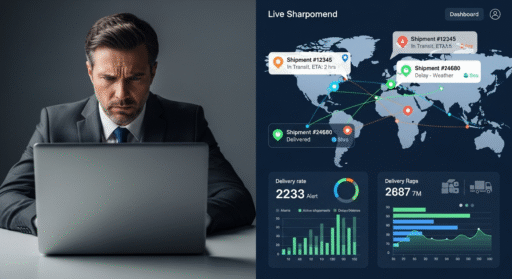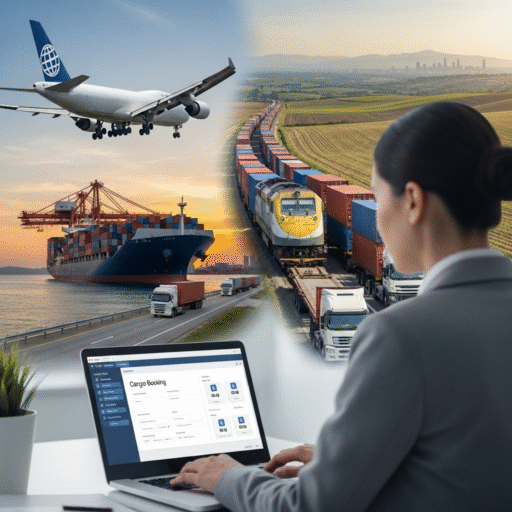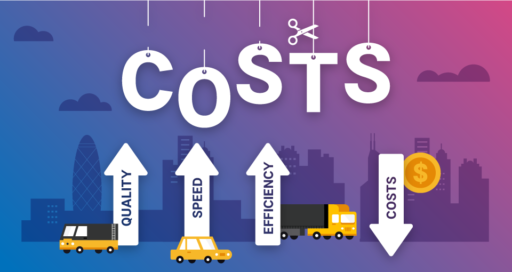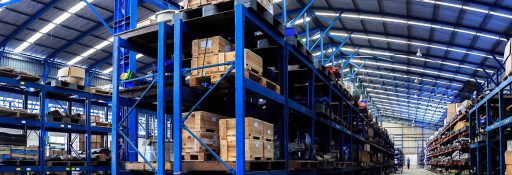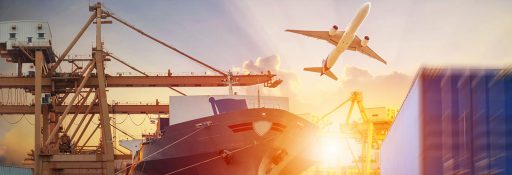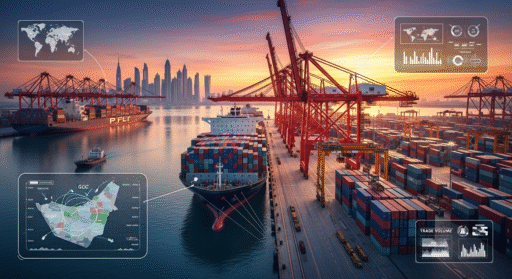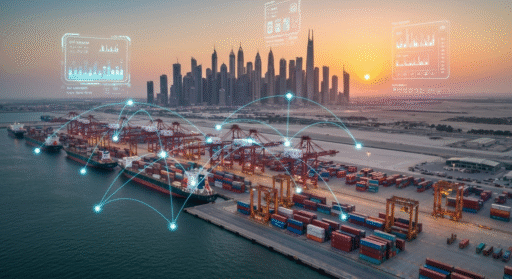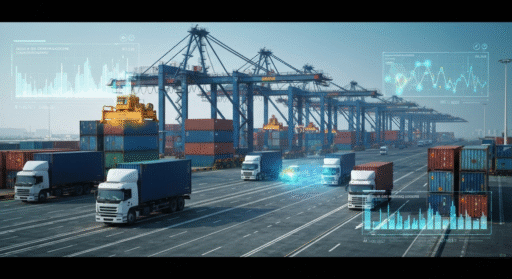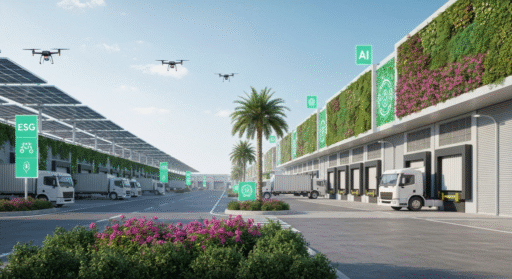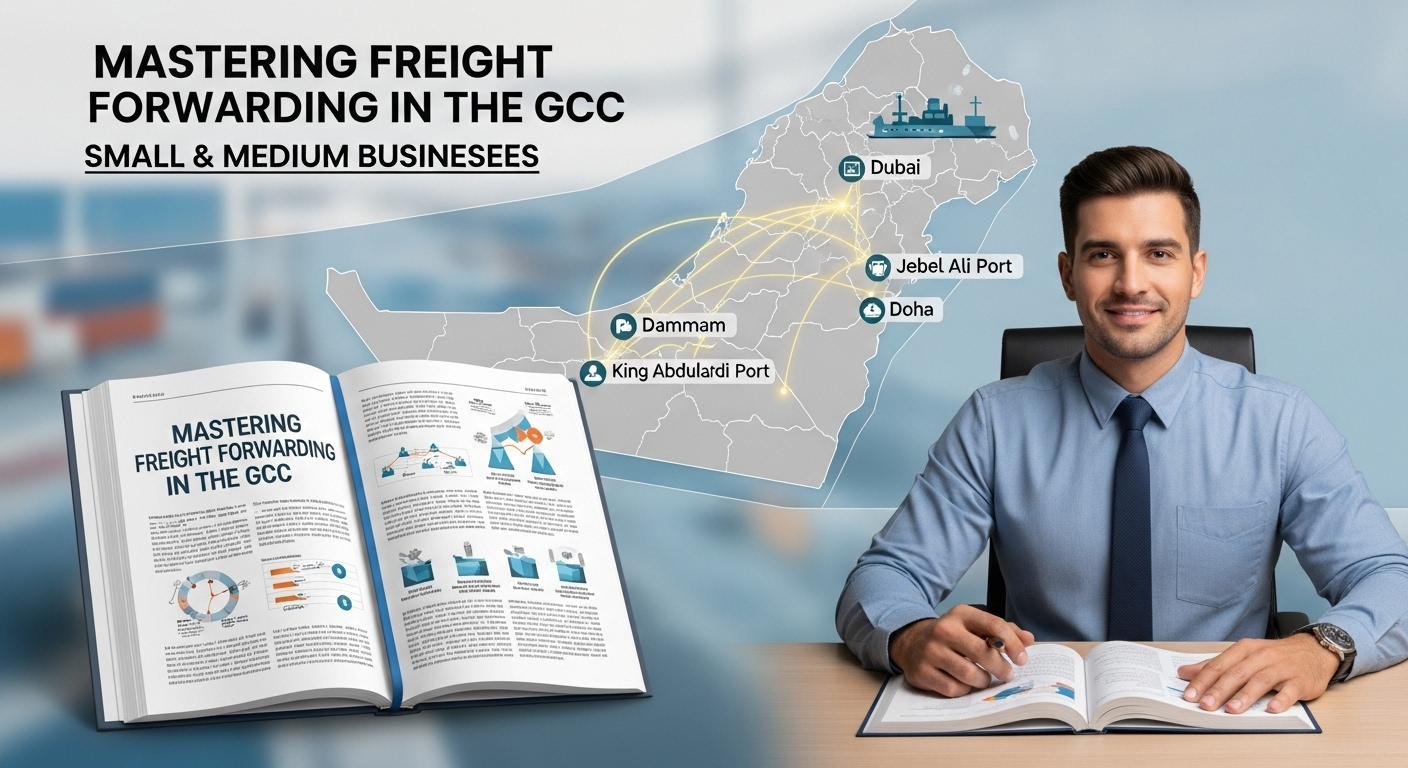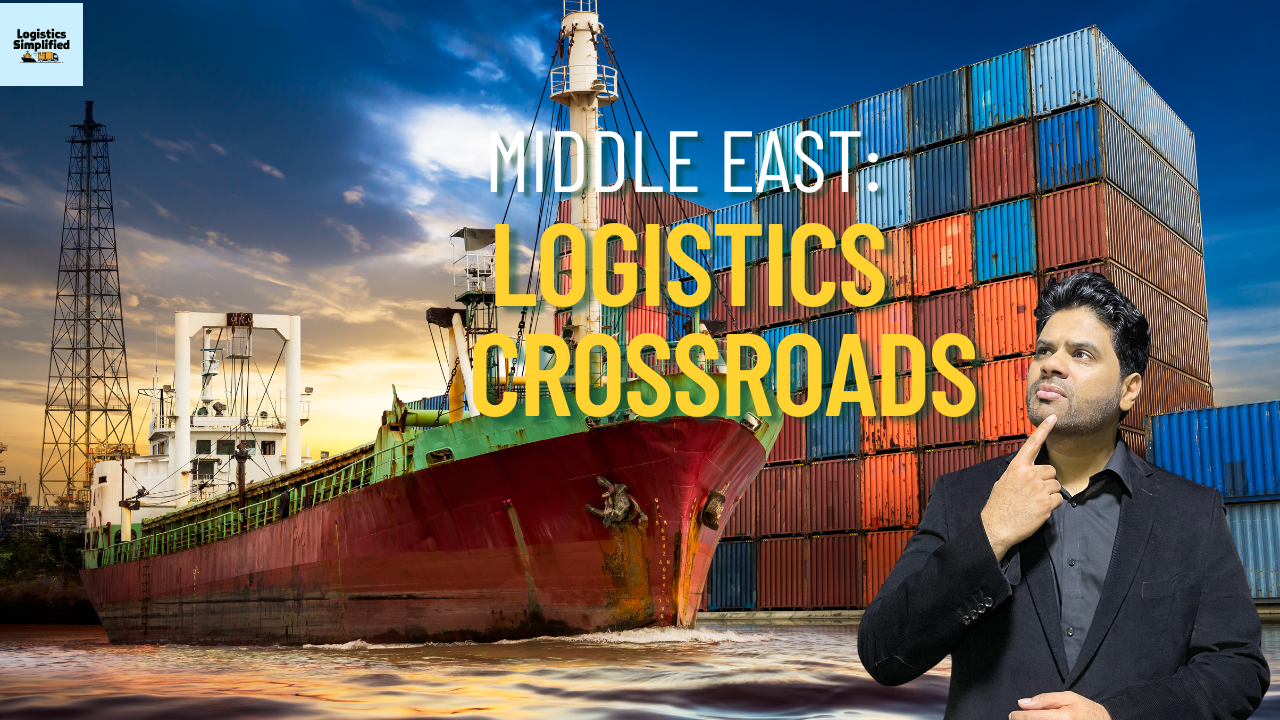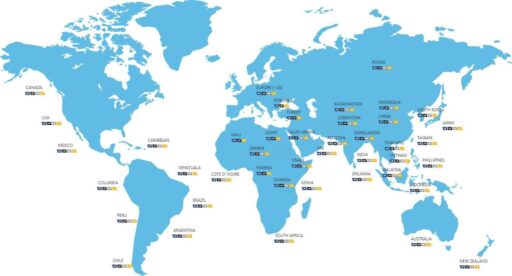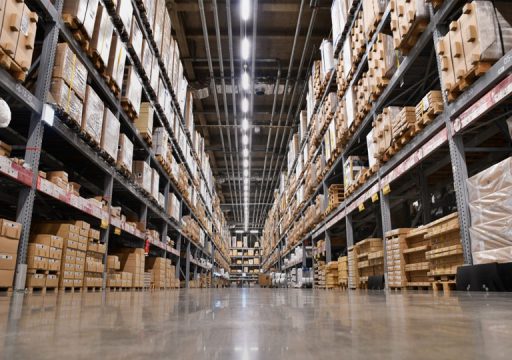The Gulf Cooperation Council (GCC) shipping market is undergoing a transformation unlike any seen before. Driven by massive infrastructure investments, digital innovation, and shifting global trade dynamics, logistics across the UAE, Saudi Arabia, Qatar, Kuwait, Oman, and Bahrain is no longer just about transporting goods from point A to point B. It’s now about building intelligent, resilient, and sustainable supply chains that can withstand volatility, meet regulatory demands, and deliver real competitive advantage.
Mega-ports like Jebel Ali Port (UAE), Hamad Port (Qatar), and King Abdullah Port (Saudi Arabia) are redefining regional connectivity. These state-of-the-art hubs are not only increasing cargo capacity but also integrating smart technologies such as AI-driven terminal operations, automated cranes, and blockchain-enabled customs clearance systems. At the same time, the rise of digital freight platforms and e-logistics solutions is democratizing access to shipping data, enabling even small businesses to compete on a global scale.
Yet, despite these advancements, the reality for many shippers — especially SMEs and mid-sized enterprises — remains complex. Unpredictable freight rates, port congestion, evolving customs regulations, and growing pressure to meet environmental, social, and governance (ESG) standards are creating both challenges and opportunities.
At Al Furqan Shipping & Logistics UAE, we’ve been at the forefront of this evolution, working hand-in-hand with businesses across the GCC to navigate the shifting landscape of international freight forwarding. Our mission? To turn logistics complexity into strategic advantage — helping clients reduce costs, improve delivery reliability, and future-proof their supply chains.
The Unspoken Truth About Freight Forwarding in the GCC
Let’s be honest: in today’s hyper-competitive GCC logistics environment, being the cheapest option doesn’t win long-term business.
What truly sets successful freight partners apart are three core pillars:
✅ 1. Reliability: Delivering When It Matters Most
In a region where peak seasons (like Ramadan, Eid, and major events such as Expo 2030 or FIFA World Cup 2022 legacy surges) cause massive port congestion, the ability to deliver on time, every time is priceless. A reliable forwarder doesn’t just promise timely delivery — they build contingency plans, secure priority berthing slots, and maintain strong carrier relationships to ensure your cargo moves smoothly, even during disruptions.
✅ 2. Transparency: No Hidden Fees, No Surprises
Clients are tired of vague quotes and surprise surcharges. True transparency means providing clear, itemized rate breakdowns, accurate transit time estimates, and upfront disclosure of all potential fees — including bunker adjustments (BAF), currency adjustment factors (CAF), and peak season surcharges (PSS). When shippers understand exactly what they’re paying for, trust is built — and relationships last.
✅ 3. Partnership: Your Strategic Logistics Ally
The best freight forwarders don’t see themselves as vendors. They act as long-term strategic partners, embedded in your supply chain planning. From advising on optimal routing and incoterms to helping you meet ESG goals, a true logistics partner adds value far beyond booking a container.
5 Key Realities Shaping the GCC Shipping Industry in 2025
To succeed in the modern GCC freight market, businesses must understand and adapt to these five critical trends:
1. Volatile Freight Rates: The New Normal
Ocean freight rates have become increasingly unpredictable due to geopolitical tensions, fluctuating fuel prices, and imbalanced trade lanes.
📊 Real-World Example: A 40-foot container from Shanghai to Jebel Ali could cost $1,200 one month, then jump to $1,800 the next — a 50% increase in just 30 days.
For SMEs with tight margins, this volatility makes budgeting nearly impossible. Without long-term contracts or rate advisory support, companies risk eroding profits overnight.
💡 Solution: Partner with a forwarder that offers rate advisory services, predictive analytics, and flexible contract options — including spot rate monitoring and hedging strategies.
2. Port Congestion & Transit Delays: Planning for the Unplanned
Major ports in the GCC, while world-class, are not immune to bottlenecks. Seasonal spikes in imports before religious holidays, infrastructure upgrades, or labor shortages can lead to delays of 7–14 days or more.
🚢 Case in Point: Pre-Ramadan import surges often overwhelm customs checkpoints in Dubai and Dammam, leading to vessel stacking and extended dwell times.
Forwarders who rely on single-route strategies fail their clients when disruptions hit.
✅ Best Practice: Choose a logistics provider that offers multi-port routing options, real-time vessel tracking, and dynamic rerouting capabilities to bypass congested hubs.
3. Customs Compliance Complexity: One Region, Six Rulebooks
Each GCC country has its own customs regulations, documentation requirements, and certification processes — making cross-border trade a minefield for the unprepared.
📋 Example Breakdown:
- Saudi Arabia: Requires SASO (Saudi Standards, Metrology and Quality Organization) certification and often mandates local inspection.
- UAE: May require HS Code reclassification based on Dubai Customs’ internal guidelines.
- Qatar: Enforces strict rules on origin documentation and pre-shipment inspections.
One missing document or incorrect classification can result in delays, fines, or even seizure of goods.
🔐 Pro Tip: Work with a forwarder that employs in-house compliance experts familiar with each GCC nation’s regulatory framework — ensuring smooth clearance every time.
4. Technology Adoption Gap: The Digital Divide in Freight
While global logistics giants invest heavily in AI, IoT, and cloud-based platforms, many small and mid-sized freight forwarders in the GCC still rely on manual processes, spreadsheets, and email updates.
But today’s shippers expect more.
📦 Customer Expectation: Just like tracking a package on Amazon, B2B clients want real-time visibility into their shipments — including GPS location, estimated arrival times, customs status, and warehouse updates.
📉 The Gap: Only 38% of regional SMEs report having full shipment visibility, according to recent Gulf Logistics Survey data.
🚀 Opportunity: Forwarders who adopt digital freight platforms, offer mobile apps, and integrate EDI/API systems will dominate customer loyalty and retention.
5. ESG and Sustainability Pressure: Green Logistics Is No Longer Optional
Global buyers, especially in Europe and North America, are demanding carbon transparency from their suppliers. Under new regulations like the EU Corporate Sustainability Reporting Directive (CSRD) and Scope 3 emissions reporting, companies must disclose the carbon footprint of their entire supply chain — including freight.
🌱 The Stakes Are High: Exporters without verifiable CO₂ emission reports may lose contracts to competitors who can prove they use low-emission transport modes.
📉 Risk: A UAE-based electronics exporter shipping to Germany could be disqualified from a tender simply because they can’t provide a carbon audit of their sea freight routes.
✅ Forward-Thinking Solution: Partner with a logistics provider committed to green shipping practices, such as:
- Using carriers with low-sulfur fuel or LNG-powered vessels
- Leveraging route optimization software to reduce fuel consumption
- Offering carbon offset programs and emission dashboards
3 Proven Strategies to Stand Out as a Freight Partner in the GCC
In a crowded market, differentiation is key. Here’s how leading forwarders — including Al Furqan Shipping & Logistics — help clients gain a competitive edge:
1. Be Data-Driven: Turn Insights into Action
Modern logistics isn’t guesswork — it’s powered by data.
Top-tier forwarders now offer clients customizable dashboards that display real-time KPIs such as:
- Average transit times by trade lane (e.g., China to Jebel Ali)
- On-time delivery performance (%)
- Cost per shipment (FCL/LCL/Air)
- Customs clearance duration
- Vessel delay frequency
📊 Impact: With access to actionable insights, businesses can renegotiate contracts, optimize inventory, and forecast logistics spend with greater accuracy.
2. Bundle Value-Added Services: Go Beyond Freight
The most valuable logistics providers don’t stop at booking containers — they solve broader business problems.
💡 Example: Offer sea freight + bonded warehouse storage in Jebel Ali Free Zone. This allows importers to:
- Defer customs duties until goods are withdrawn
- Reduce inventory holding costs
- Respond faster to market demand
Other value-added services include:
- Labeling and kitting
- Quality inspections
- Last-mile delivery coordination
- Reverse logistics and returns management
By bundling services, you create stickier client relationships and increase average revenue per customer.
3. Commit to Sustainability: Build a Greener Supply Chain
Sustainability isn’t just a buzzword — it’s a business imperative.
Forwarders that prioritize green logistics can:
- Help clients meet ESG reporting requirements
- Qualify for green financing and preferential trade terms
- Enhance brand reputation among eco-conscious buyers
At Al Furqan Shipping & Logistics, we’re proud to partner with carriers using:
- EV trucks for first- and last-mile deliveries
- AI-powered route optimization to minimize idle time and fuel use
- Carbon-neutral shipping options via verified offset programs
We also provide clients with monthly sustainability reports, detailing CO₂ savings and environmental impact — a powerful tool for corporate reporting and stakeholder engagement.
Why SMEs in the UAE and GCC Should Care About Smart Logistics
For small and medium-sized enterprises, efficient logistics isn’t a luxury — it’s a survival tool.
By aligning with a forwarder that offers transparent pricing, regulatory expertise, and sustainable solutions, SMEs can achieve transformative results:
✅ Reduce annual logistics costs by up to 15% through optimized routing and reduced demurrage/detention fees ✅ Cut customs delays by 30–40% with accurate documentation and pre-clearance support ✅ Win more international contracts by meeting ESG standards and providing carbon transparency ✅ Improve cash flow with duty deferral and flexible payment terms via bonded warehousing ✅ Scale faster with reliable, scalable logistics infrastructure
Whether you’re importing machinery into Riyadh, exporting textiles from Sharjah, or distributing consumer goods across the Gulf, the right logistics partner can be your secret weapon for growth.
Call to Action: Ship Smarter in 2025 — Subscribe to Logistics Unbound
The future of GCC shipping is here — and it’s digital, sustainable, and data-driven.
If you’re ready to cut costs, avoid delays, and future-proof your supply chain, join thousands of forward-thinking shippers who subscribe to Resilience In Freight, the premier insights newsletter from Al Furqan Shipping & Logistics UAE.
📬 What You’ll Get:
- Weekly updates on freight rate trends (FCL, LCL, air cargo, overland)
- Practical guides on customs compliance in Saudi Arabia, UAE, Qatar & beyond
- Tips on reducing carbon emissions in your logistics operations
- Case studies from real GCC businesses that saved time and money
- Exclusive invites to webinars and industry roundtables
Subscribe To My YouTube Channel: Logistics Simplified
https://www.youtube.com/channel/UCG80h3AZITJG2SAUqLXP7Xw
Al Furqan Shipping & Logistics UAE Your Trusted Partner in GCC Freight Forwarding & Sustainable Supply Chains 📍 Dubai | Abu Dhabi | Sharjah | KSA | Qatar 📞 +971 558909989 | ✉️ info@alfurqanshipping.com 🌐 www.alfurqanshipping.com
Stay ahead of the curve. Subscribe. Optimize. Grow.
